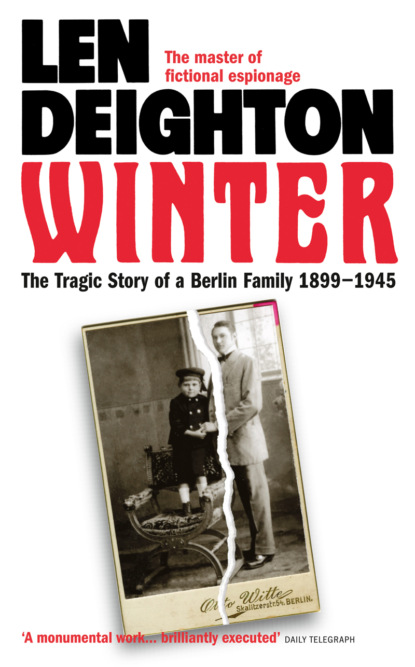По всем вопросам обращайтесь на: info@litportal.ru
(©) 2003-2025.
✖
Winter: A Berlin Family, 1899–1945
Настройки чтения
Размер шрифта
Высота строк
Поля
‘And the pianist – Hennig, isn’t it? – was the one with the broken ankle. God moves in strange ways; I’ve always said that.’
‘It’s a curious war, isn’t it? The zeppelin staff plan to bomb Saint-Omer’s town hall when all the top Allied military commanders are there together with the King of England and the Belgian King. And the Kaiser forbids it.’
‘You disagree?’
‘After a night looking at the cruelly mutilated bodies of so many very young men, I simply say it’s a curious war.’
Peter heard one of them hang the clipboard back on its book before they went out of his room, but he kept his eyes closed and pretended to be asleep.
In England the next day, visitors went to the wreckage of the zeppelin that had been shot down near London. Frederick William Wile – one time Berlin correspondent of The Daily Mail – wrote ‘…even those who felt most bitterly about the brutality of raids upon unarmed civilian populations could not refrain from pity at the sight.’
Wile continued: ‘It is one of the traditions of the Hohenzollerns that the King of Prussia must ride across the battlefields on which his soldiers have fallen and look his dead men in the face. Trench warfare and a decent regard for his own skin have prevented William II from carrying out this ghoulish rite in his war. But I wish some cruel Fate might have taken the Kaiser by his trembling hand yesterday morning and led him to that rain-soaked meadow in Hertfordshire, and bade him look as I looked at the charred remains of human wreckage which a few hours before was the crew of an Imperial German airship. I wish Count Zeppelin, the creator of the particular brand of Kultur which sent the baby-killers to their doom, might have been in the Supreme War Lord’s entourage. I wondered, standing there by the side of that miserable heap of exposed skulls, stumps of arms and legs, shattered bones and scorched flesh, whether the Kaiser would have revoked the vow he spoke at Donau-Eschingen in the Black Forest eight years ago when he christened the inventor of airship frightfulness, “the greatest German of the twentieth century”.’
Вы ознакомились с фрагментом книги.
Приобретайте полный текст книги у нашего партнера:
Приобретайте полный текст книги у нашего партнера:











